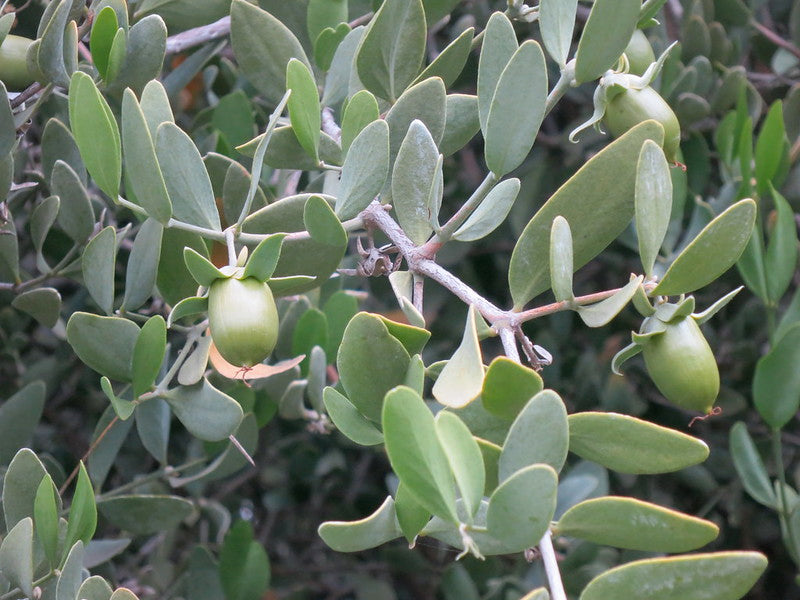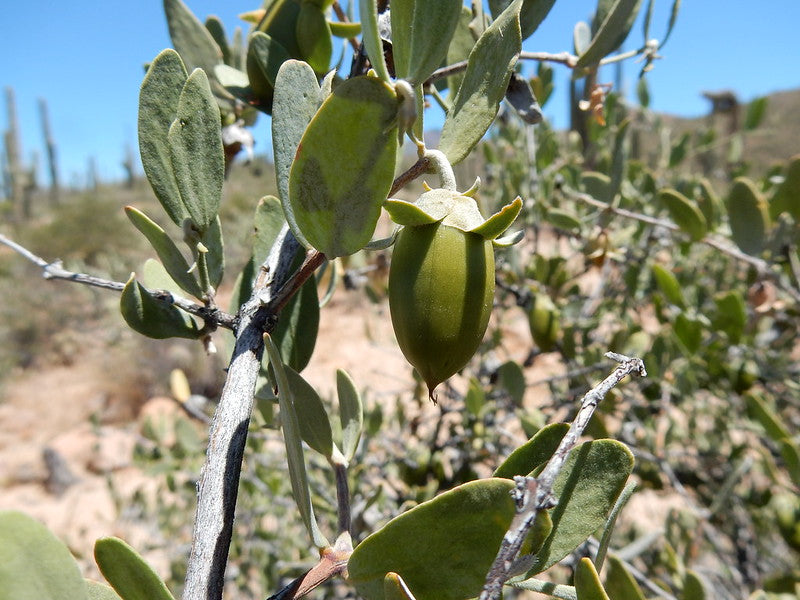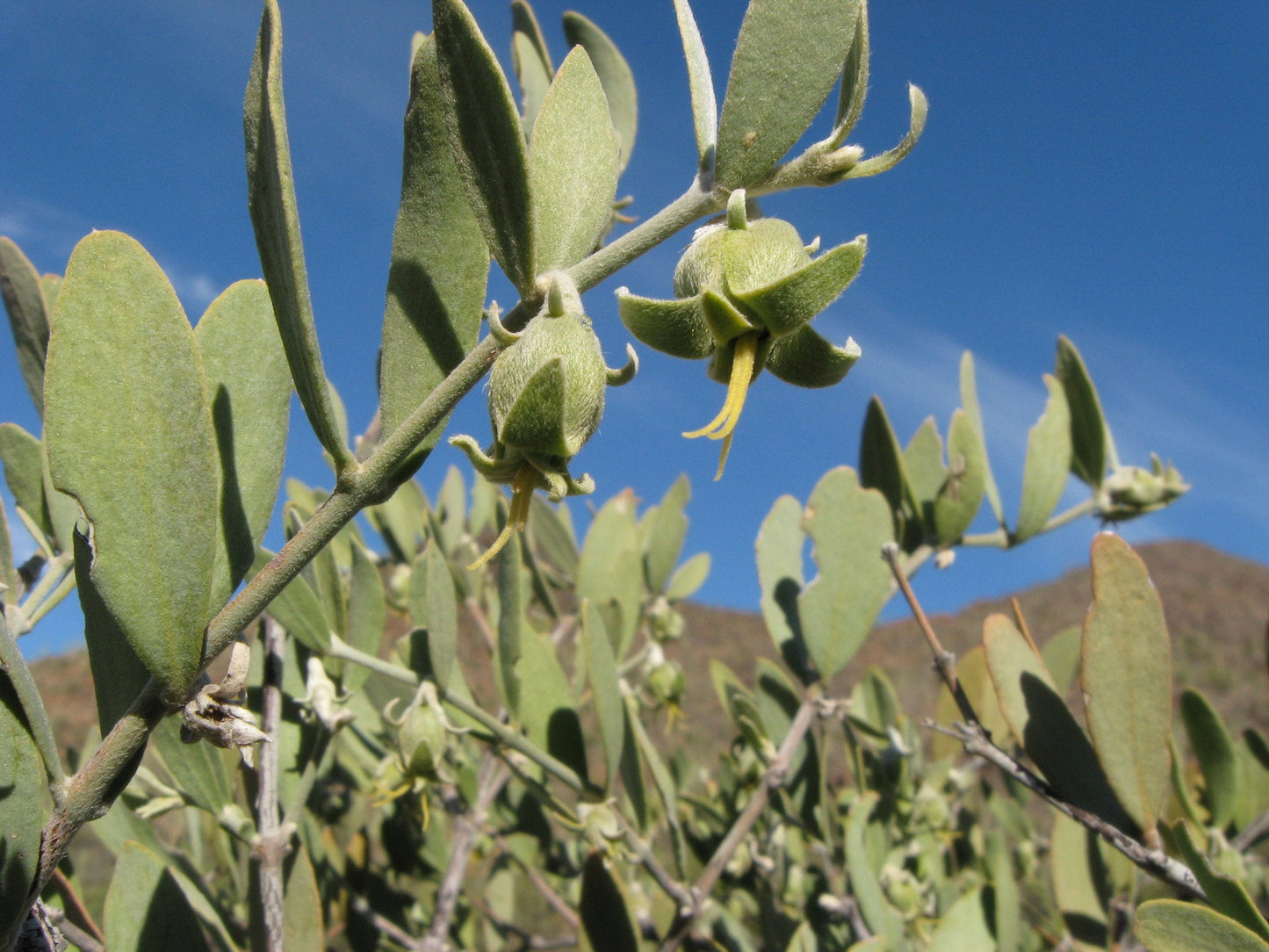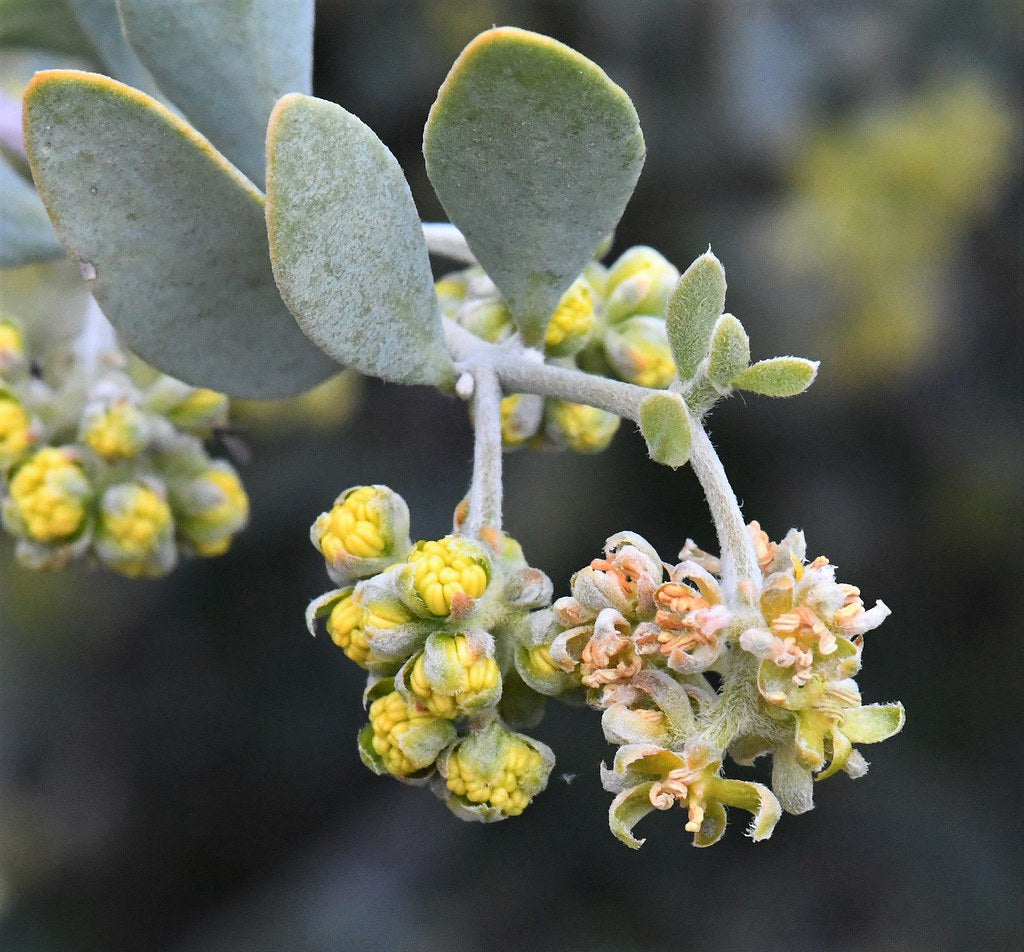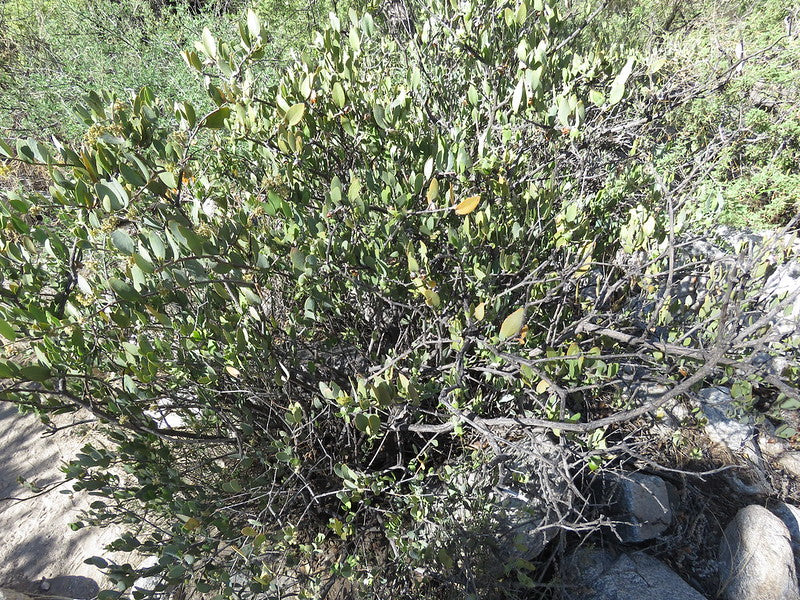Floridaseeds
Jojoba Simmondsia chinensis 20 Seeds
Jojoba Simmondsia chinensis 20 Seeds
Couldn't load pickup availability
Simmondsia chinensis, commonly known as jojoba, is a shrub native to the arid regions of the southwestern United States and northwestern Mexico. Here are some key features and characteristics:
Appearance: Jojoba is a dioecious evergreen shrub that typically grows to heights of 3 to 6 feet (0.9 to 1.8 meters), although it can occasionally reach up to 10 feet (3 meters) tall. It has a dense, rounded crown with small, leathery, gray-green leaves that are oval or lance-shaped. The plant produces small, greenish-yellow flowers in spring, which are inconspicuous and typically go unnoticed.
Fruit: Jojoba produces fleshy, greenish-brown fruit that resembles acorns or small nuts. These fruits contain a single seed, which is rich in oil. The seeds, commonly referred to as jojoba beans or nuts, are the primary commercial product of the plant.
Oil Production: Jojoba oil is highly valued for its unique chemical composition, which closely resembles human sebum, the natural oil produced by the skin. Jojoba oil is extracted from the seeds and is used in a variety of cosmetic, pharmaceutical, and industrial applications. It is prized for its moisturizing and emollient properties and is commonly found in skincare products such as lotions, creams, and lip balms.
Habitat: Jojoba is well adapted to arid and semi-arid climates, where it thrives in sandy or rocky soils with good drainage. It is commonly found in desert scrub, chaparral, and coastal dunes, where it plays an important role in stabilizing soils and preventing erosion.
Cultural and Ecological Significance: Jojoba has been used for centuries by Indigenous peoples of the southwestern United States and northwestern Mexico for various purposes, including food, medicine, and cosmetics. The plant also provides important habitat and food for wildlife, including birds and small mammals.
Commercial Cultivation: Jojoba is commercially cultivated for its oil, which is in high demand in the cosmetics industry. The plant's ability to thrive in arid environments makes it well-suited to cultivation in regions with limited water resources. Jojoba cultivation is practiced in several countries, including the United States, Argentina, Israel, and Australia.
Overall, Simmondsia chinensis is a versatile and valuable plant, prized for its oil-rich seeds, ecological resilience, and numerous commercial applications.






